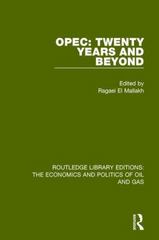Question
3- [Externalities, Polluting industries, and Environmental policies - 70p] Notes: - Polluting industries are economic sectors that are major consumers and producers of fossil fuels
3- [Externalities, Polluting industries, and Environmental policies - 70p] Notes: - "Polluting industries" are economic sectors that are major consumers and producers of fossil fuels and the primary sources of greenhouse gas emissions.
- The major consumers of fossil fuels are the transportation sector, electricity producers, manufacturing sector, commercial and residential, and agricultural sectors. - The supply side of the market are producers of fossil fuels (e.g., oil, gas, and coal producers).
- To make things simple, assume that the negative external effect of fossil fuels comes from the demand side of the market, i.e., consumption of fossil fuels.
d- Which of these two policies are more effective in reducing inefficiencies of free markets for polluting industries: a tax on producers of fossil fuels or a tax on consumers of fossil fuels? Assume the size of the tax is equal in both cases. Use supply and demand diagrams and explain. Notes: Your graph and explanation should complement each other, and your graphical analyses should include all relevant welfare analyses. [10p].
e- The proponent of supply-side economics argues that cutting taxes reduce inefficiencies and have socially desirable effects. Reevaluate the main argument of supply-side economics for polluting industries. In particular, discuss how the relationship between the tax size and the DWL of tax will change in the presence of negative externalities. [15p]
Step by Step Solution
There are 3 Steps involved in it
Step: 1

Get Instant Access to Expert-Tailored Solutions
See step-by-step solutions with expert insights and AI powered tools for academic success
Step: 2

Step: 3

Ace Your Homework with AI
Get the answers you need in no time with our AI-driven, step-by-step assistance
Get Started


